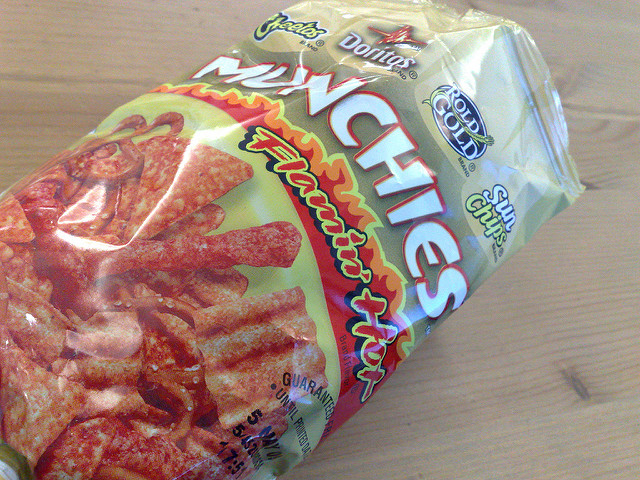Marijuana use has been notoriously associated with a phenomena that has been affectionately named “The Munchies”–when suddenly the body craves food, and a lot of it. New research from the Yale School of Medicine shows us what exactly may be going on in our brains to cause these bouts of hunger, and helps to explain the underlying mechanisms behind “The Munchies.”
Researchers studied “The Munchies” by giving mice a cannabinoid-like substance, and then observing the activation and brain processes that followed. Cannabinoids are chemical compounds found in marijuana that bind to special receptors in the brain, releasing molecules that send messages throughout the body and causing various actions. Cannabinoids, specifically, bind to a special receptor called CB1R. Researchers observed that when cannabinoids were bound to CB1R, neurons called pro-opiomelanocortin, or POMC, neurons became activated in a rather interesting way (Neurons are specialized nervous system cells that communicate information throughout the body as electrical or chemical signals). Normally when we eat, POMC neurons, found in the control center of the brain called the hypothalamus (see image below), produce a hormone called a-melanocytestimulating hormone (a-MSH), which makes us feel full when we have had enough to eat. Based on this fact, researchers proposed that cannabinoids may work by blocking the production of these hormones that make us feel full, thus, making us feel hungry.
Image Source: Fernando de Cunha
Interestingly, POMC neurons also produce a hormone called β-endorphin that increases our appetite. Contrary to what the researchers believed they would find, cannabinoids administered to the brain actually activated POMC neurons, but instead of producing a-MSH, β-endorphin was produced. The binding of cannabinoids to CB1R prevented the secretion of a-MSH (that would make us feel full), and instead drove the production of β-endorphin by POMC neurons, giving bodies a feeling of hunger. Both of these products are derived from POMC.
Further analysis showed that cannabinoids increased the activity of mitochondrial uncoupling protein 2 (UCP2), which is important in the regulation of our eating activity. Previous studies have shown that UCP2 is linked to the malfunctioning of POMC neurons in people who have diet-induced obesity, and thus, UCP2 may help explain the mechanisms behind “The Munchies.”
Beyond simply being interesting, this research has potential to help develop treatments for people who experience a loss of appetite as side effects of disease or who are going through chemotherapy.
Feature Image Source: Flamin’ Hot Munchies by aivrendotcom










